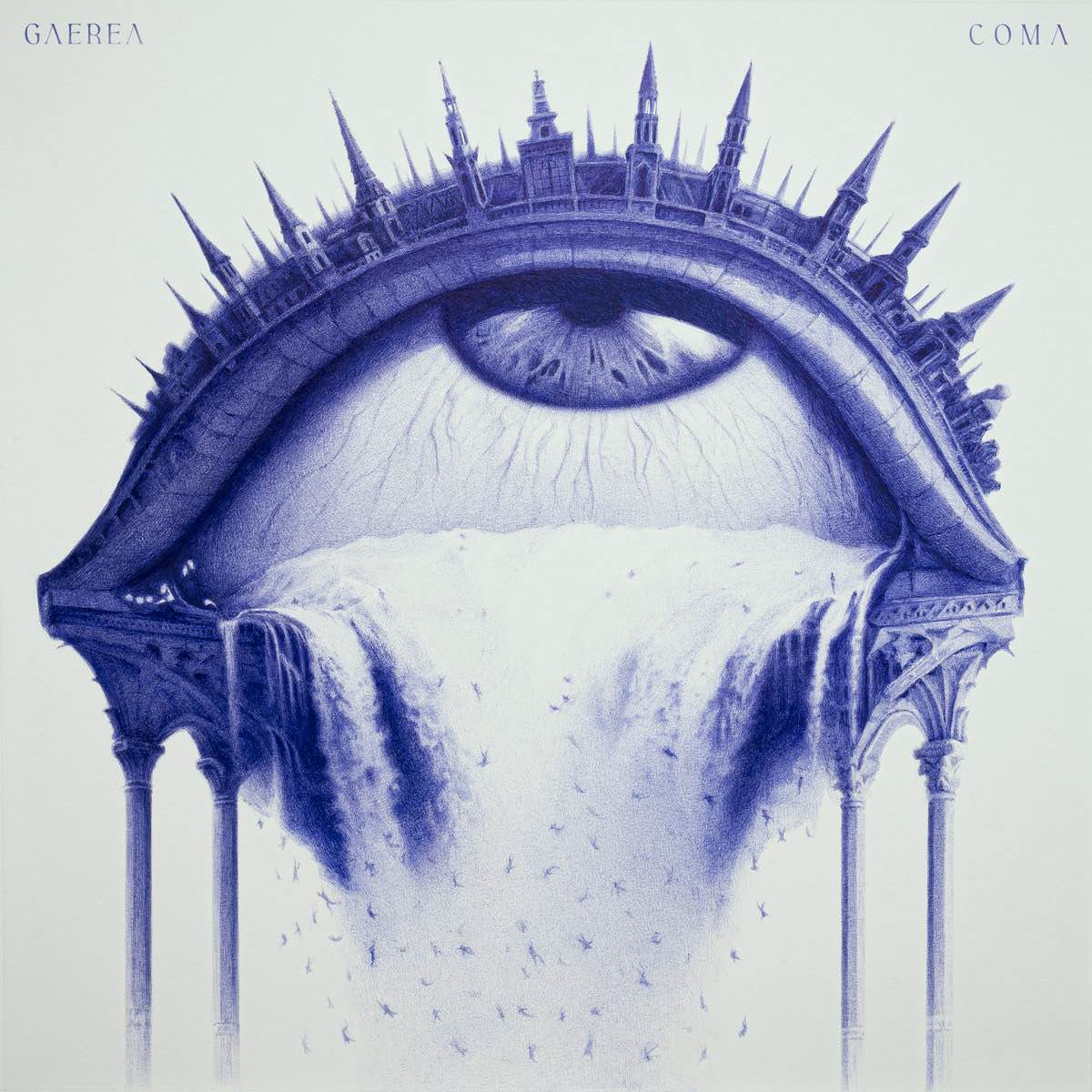Gaerea
Coma
SEASON OF MIST
ABOVE THE CURRENT
As recently as the aughts, metal bands almost universally focused on a single goal with their records: Make each one harder, faster, harder, louder, harder—did I mention “harder”?—than the ones before it. Fortunately, that trend faded in tandem with the proliferation of new metal subgenres over the past couple of decades. That development, in turn, gave metal bands a permission structure to eschew that ludicrous goal in favor of more organic growth, specifically by evolving into whatever shape the band felt called to embrace. While this freedom has evidently led to a slew of black-metal bands shrouded with masks or hoods (Uada, Batushka, Imperial Triumphant, Heilung, Cult of Fire), there’s one unsettling ensemble that stands cloaked heads and shoulders above the rest: Portugal’s Gaerea.
Coma, the quintet’s fourth full-length, not onIy finds them sharpening their craft—nary a song could be considered filler here—but it also makes a strong claim as 2024’s best metal record, regardless of subgenre. It never succumbs to the aforementioned bygone philosophy of decibelic maximalism, which inherently leads to diminishing returns—not for one second. Rather, it’s become the poster child for a drastic shift in goals and expectations within metal as it captures Gaerea’s “best self,” to use the parlance of our times. We always knew Gaerea would age well, as evidenced by the strength of their previous studio albums (their 2018 debut, Unsetting Whispers, most of all—even though it was the band’s third album, Mirage, that catapulted Gaerea to new heights of popularity). We just never knew they had Coma in them until now.
The record wisely pumps the brakes on Gaerea’s aggro tendencies, allowing the spotlight to instead focus on Diogo Mota’s more unconventional drum patterns, gorgeous guitar-led soundscapes, forays into minimalism, and Guilherme Henriques’ clean vocals, which surface on a Gaerea record for the first time. The latter decision is a dicey dare in and of itself, as rigid-minded black metal loyalists quickly stamp a scarlet letter on bands that drift away from exclusively using harsh vocals. Gaerea add in a couple more agents of change in the form of keyboards and pianos, which coordinate to layer the band’s sound with greater depth and dimensionalism. At times, Coma almost sounds as if it were created by another artist. But in reality, what the record introduces us to is a whole new version of Gaerea: not harder and louder all the time, but rather more creatively unrestrained, more confident.
By climbing out of the black-metal pigeonhole to which many critics confined Gaerea, Coma proves in no uncertain terms that the band is easily able to transcend the subgenre and stand tall with its own gnarly, nearly depraved sound. Gaerea’s remarkable growth as documented on Coma isn’t unlike Deafheaven’s striking transformation on their own fourth album, 2018’s Ordinary Corrupt Human Love; or Uada’s stylistic alterations on—you guessed it—their fourth LP, Crepuscule Natura. But neither of those records turned out to be as glorious as Coma. Gaerea super-fans knew that this record was going to usher in this new model of the band; after all, its first single “World Ablaze” was the distillation of multiple new developments mentioned above.
But nothing prepared us for the magnum-opus brilliance of Coma. No, you’re not living in a scary dream-state a la Tim Robbins’ character in Jacob’s Ladder. You’re just witnessing Gaerea 2.0 for the first time. And you will be very pleased to meet them.







